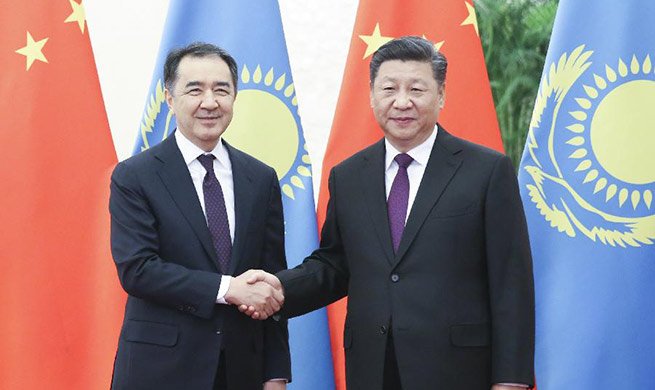WASHINGTON, Nov. 21 (Xinhua) -- New rules proposed on Monday by the U.S. Commerce Department to control the exports of emerging technologies have drawn backlash from industrial experts, who are concerned that such measures could inflict damage on U.S. tech companies.
The Bureau of Industry and Security of the department announced that it plans to impose export controls on 14 categories of emerging and foundational technologies that are "essential" to national security, including AI, advanced computing technology, biotechnology, microprocessor technology, quantum information, and 3D printing.
The new rules are proposed on the basis of the Export Control Reform Act of 2018, which authorizes the department to establish "appropriate" controls on the export, reexport or transfer of emerging and foundational technologies on national security grounds, the bureau said. Public comments will be accepted for 30 days.
The bureau said it hopes to protect national security without "hampering the ability of the U.S. commercial sector to keep pace with international advances."
Industrial experts believe the move will have an adverse impact on the export of products from numerous U.S. companies, such as Apple's Siri, Google's smart speaker Home, iRobot Roomba's vacuum and IBM's AI system Watson.
"Breadth of proposals is notable," R. David Edelman, director of the Project on Technology, the Economy, and National Security at the Massachusetts Institute of Technology, said on Twitter.
Edelman, who served as special assistant to former U.S. President Barack Obama, called the comment timeline "aggressive," saying he expects "a flurry of comments" from tech companies and beyond.
Mark DeLoura, Obama's digital media advisor, joked on Twitter that even his game consoles would be hit by the export controls.
"We ran into both crypto and high-performance computing export regulations on multiple game consoles that I worked on," he said.
Lucas A. Wilson, an AI researcher at Dell EMC, holds a negative view of the proposal to put AI software methods, including neural networks, deep learning and genetic algorithms, on the list.
"This is an open research field, and doing this will only cede U.S. position in AI research," he tweeted.
Banning AI exports could be counterproductive to U.S. goals, Daniel Castro, vice president of Washington D.C.-based think tank the Information Technology and Innovation Foundation, told AFP.
"It will mean U.S. companies are locked out of certain markets, allowing firms in other countries to compete unchallenged," he said.
Castro also warned that other countries could enact "reciprocal policies."













